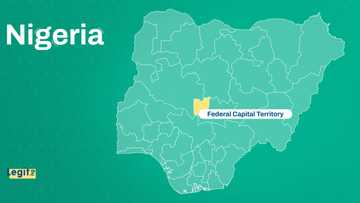“Do Not Post This”: Meta Explains Decision To Delete 63,000 Instagram and WhatsApp Accounts
- Mark Zuckerberg's Meta has decided to delete over 60,000 accounts majorly operated by Nigerians
- The social media company stated that the affected accounts were linked to financial sextortion scams, among other issues
- Meta has pledged its commitment to continue identifying, investigating, and deactivating accounts used to perpetrate fraud
Legit.ng journalist Dave Ibemere has over a decade of business journalism experience with in-depth knowledge of the Nigerian economy, stocks, and general market trends.
Meta Platforms Inc., the parent company of Facebook, Instagram, and WhatsApp, has announced the deletion of 63,000 accounts in a significant crackdown to curb fraudulent activities on its platforms.
According to the company, the affected accounts were removed for their involvement in financial fraud and extortion schemes targeting US citizens.

Source: Getty Images
Meta disclosed this in its latest Q1 2024 Adversarial Threat Report released on Wednesday, July 24, 2024.
PAY ATTENTION: Click “See First” under the “Following” tab to see Legit.ng News on your Facebook News Feed!
Meta said it identified and disabled these accounts using advanced technical signals and thorough investigations, bolstering its automated detection systems.
Meta explained that a subset of 2,500 accounts attributed to approximately 20 individuals targeted adult men in the United States through fraudulent identities.
Meta said in its report:
"We have removed around 63,000 accounts in Nigeria attempting to target people with financial sextortion scams, including a coordinated network of around 2,500 accounts."
Meta investigating more accounts
Also, Meta disclosed the removal of Facebook accounts, pages, and groups linked to the Yahoo Boys under its policy against dangerous organisations and individuals.
Meta also said that it removed approximately 7,200 assets in Nigeria, including 1,300 Facebook accounts, 200 pages, and 5,700 groups that facilitated scam-related activities.
These assets were involved in organising, recruiting, and training new scammers, Punch reports.
Here is a list of things not to post
Meanwhile, Meta has strict rules on content and has warned users not to go against them.
Meta said the decision is to prevent fraudulent activity on the platform that can harm people or businesses.
Here are some of the do not post
- Deceiving others to generate a financial or personal benefit to the detriment of a third party
- Inauthentic identity scams
- Product or rewards scams
- Engaging and coordinating with others to fraudulently generate a financial or personal benefit at a loss for a third party, such as people, businesses or organisations
- Stolen information, goods or services
- Betting manipulation
- Manipulation of measuring devices such as electricity or water meters in order to bypass their authorised or legal use.
Full details can be found here.
FG fines Facebook, Instagram, WhatsApp $220 million
In another development, Legit.ng earlier reported that the Federal Competition and Consumer Protection Commission (FCCPC) slammed Meta with a $220 million fine for a data breach.
The FCCPC disclosed that the company was fined after a 38-month-long investigation.
It said it found the company guilty of denying Nigerian data subjects the right to self-determine, unauthorised transfer and sharing of data.
Proofreading by James, Ojo Adakole, journalist and copy editor at Legit.ng.
PAY ATTENTION: Donate to Legit Charity on Patreon. Your support matters!
Source: Legit.ng





